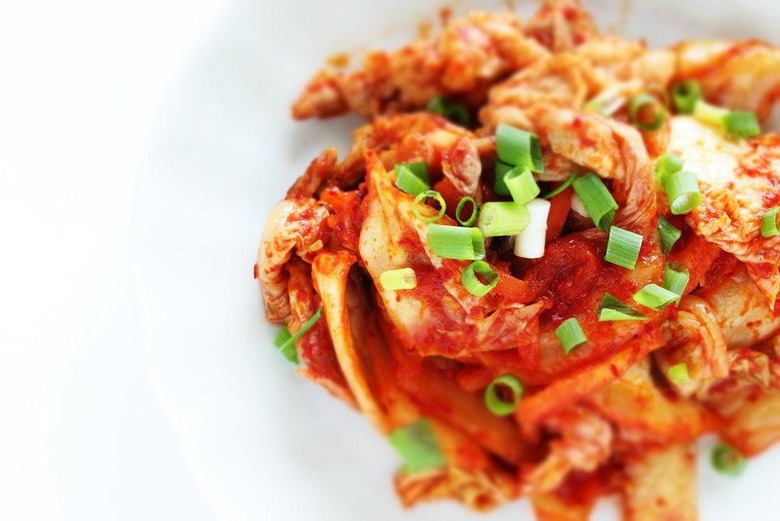South Korea's Kimchi Industry Threatened By China's Regulations On Pickles
Kimchi, the pickled cabbage dish with deep cultural roots for Koreans, can be found at the table during any meal in South Korea. And the recent free trade agreement recently signed with China should, in theory, help the kimchi industry regain its footing, given that China has agreed finally to lift tariffs on a number of items, including kimchi.
But South Korea continues to face the aftereffects of years of a deeply unfair trade situation. The removal of the kimchi tariff means little to South Korea because of China's current regulations on pickled goods, which are subject to certain hygiene conditions.
When China classified kimchi as a pickle, the fermented product, with its high levels of lactic acid bacteria — good bacteria, by the way — did not pass import standards. Other pickles are typically sterilized and contain low levels of bacteria.
China, meanwhile, was free to export as much of its own kimchi as desired.
"For years, cheaper Chinese kimchi flowed into South Korea, undercutting local producers, who were not permitted to export to China," according to The New York Times. "The subject became such a sore point that kimchi was left out of important trade talks with China for years."
In February, China finally made a concession to the kimchi dispute, indicating that it would make revisions to its kimchi regulations — but the World Trade Organization has yet to confirm the change.
Years later, it's hard to tell whether kimchi will ever regain its rightful place in its own country.
"We are the leaders in kimchi making," Kim Soon-ja, the chief executive of Hansung Food, told The New York Times.
"But because the material and costs are cheaper in China, there is more Chinese kimchi in Korea. Now, there is too much coming from China. "
